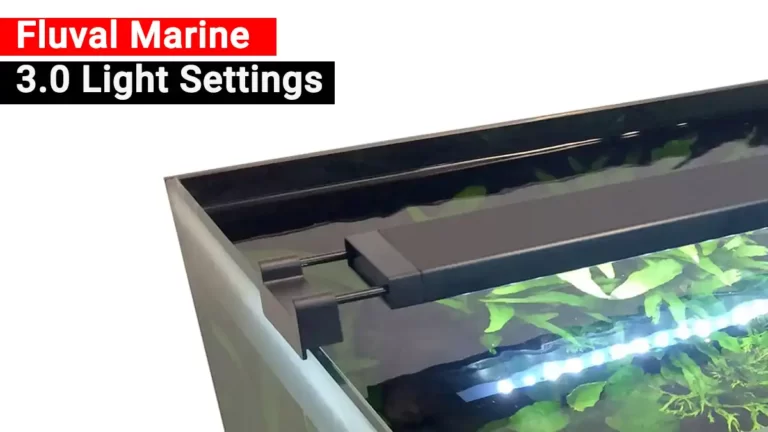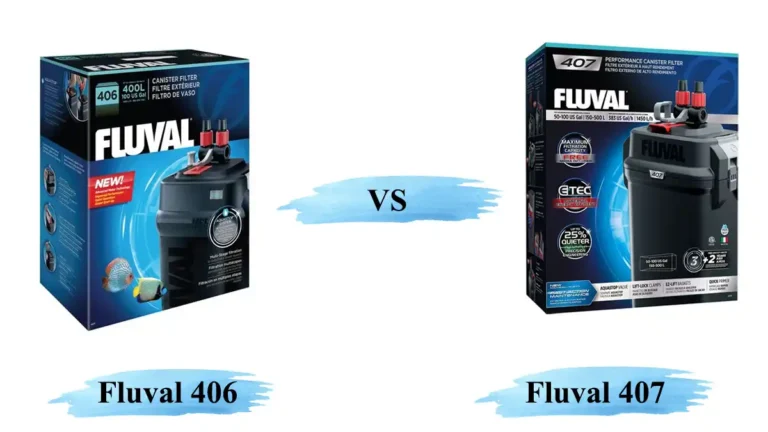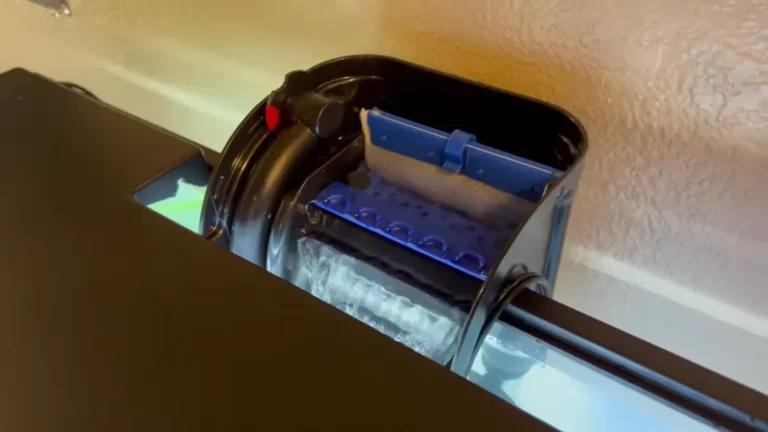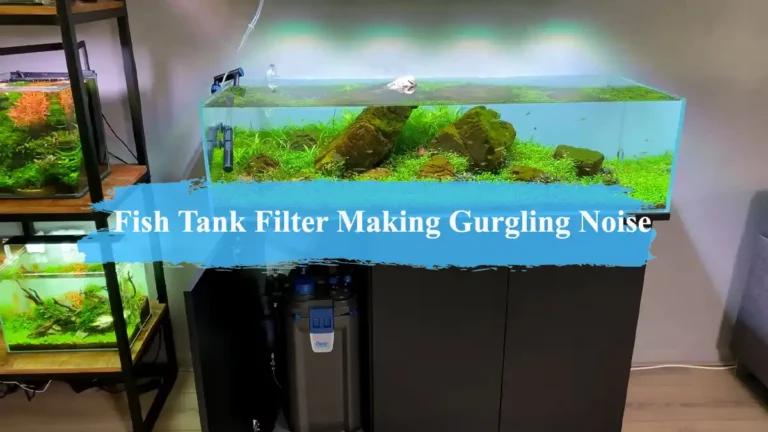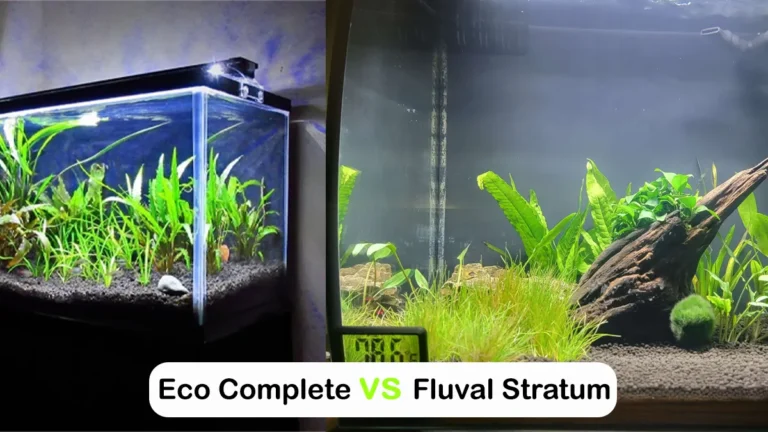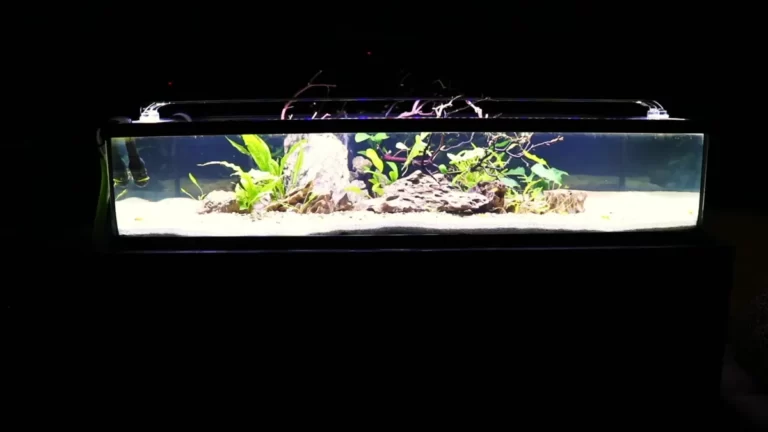Why Is My Fish Tank Filter Overflowing: Common Causes and Simple Fixes
Fish tanks are a popular addition to many homes as they bring a sense of tranquility and beauty to any room. However, maintaining a healthy fish tank requires a lot of work, including keeping the water clean and fresh. A fish tank filter is an essential tool that helps to keep the water clean by removing debris and other impurities from the water.
Key Takeaways
- Fish tank filters are essential in maintaining a healthy aquarium.
- Filter overflow is a common problem that can be caused by clogged filter media, overfilled tanks, and using the wrong-sized filters.
- Understanding the causes of filter overflow and how to fix them can help keep your aquarium clean and healthy.
One common problem that aquarium owners face is when their fish tank filter starts overflowing. This can be a frustrating experience, especially if you don’t know what’s causing the problem. There are several reasons why your fish tank filter may be overflowing, including clogged filter media, overfilled tanks, and the use of the wrong-sized filters.
Understanding the common causes of filter overflow and how to fix them can help keep your aquarium clean and healthy.
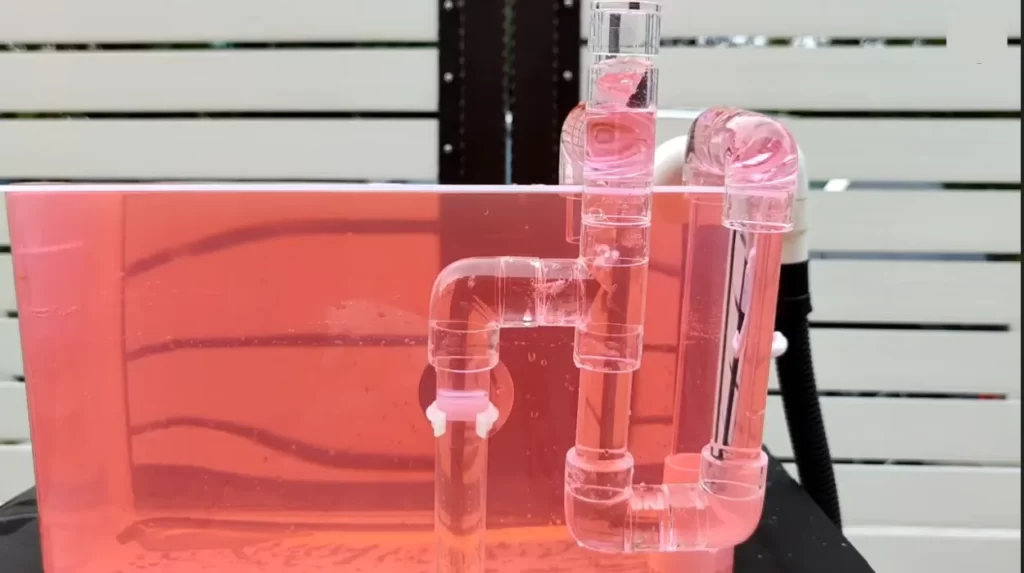
Why Is My Fish Tank Filter Overflowing?
Fish tank filters are an essential component of any aquarium setup. They help to keep the water clean and clear by removing debris, waste, and harmful chemicals. However, sometimes the filter can malfunction and start overflowing. This can be frustrating for fish owners and can even be harmful to the fish if left unchecked. Here are some of the most common reasons why a fish tank filter might be overflowing:
- Clogged filter media: One of the most common reasons for a fish tank filter to overflow is clogged filter media. This happens when dirt and other things in the water get stuck in the filter media. Over time, this buildup can prevent water from flowing through the filter properly, causing it to overflow. To fix this, the filter media should be cleaned or replaced regularly.
- Wrong-sized filter: Another reason why a fish tank filter might be overflowing is that it is the wrong size for the tank. If the filter is too small, it won’t be able to handle the amount of water in the tank, causing it to overflow. On the other hand, if the filter is too big, it can create too much suction, which can also cause it to overflow. It is important to choose the right-sized filter for the tank.
- Overfilled tank: If the tank is overfilled with water, it can cause the filter to overflow. This can happen if too much water is added during a water change or if the water level in the tank is too high. It is important to maintain the correct water level in the tank to prevent the filter from overflowing.
- High filter speed: Sometimes, the filter speed can be too high, causing it to overflow. This can happen if the filter is set to a high flow rate or if the impeller is clogged. To fix this, the flow rate should be adjusted to a lower setting, or the impeller should be cleaned.
Common Causes for Fish Tank Filter Overflow
When it comes to fish tank filters, it is not uncommon for them to overflow. This can be a frustrating issue for fish keepers, but luckily it is usually caused by a few common factors. In this section, we will discuss the most common causes of fish tank filter overflow and what you can do to prevent it from happening in the future.
Clogged Filter
One of the most common causes of fish tank filter overflow is a clogged filter. This happens when dirt, debris, and other particles in the water get stuck in the filter media, preventing water from flowing through the filter as it should. When this happens, the water can’t move through the filter, causing it to overflow.
To prevent, this from happening, it is important to regularly clean your filter media. This can be done by rinsing it with aquarium water, rather than tap water, which can kill beneficial bacteria. It is also a good idea to replace your filter media every few months to ensure it is working at its best.
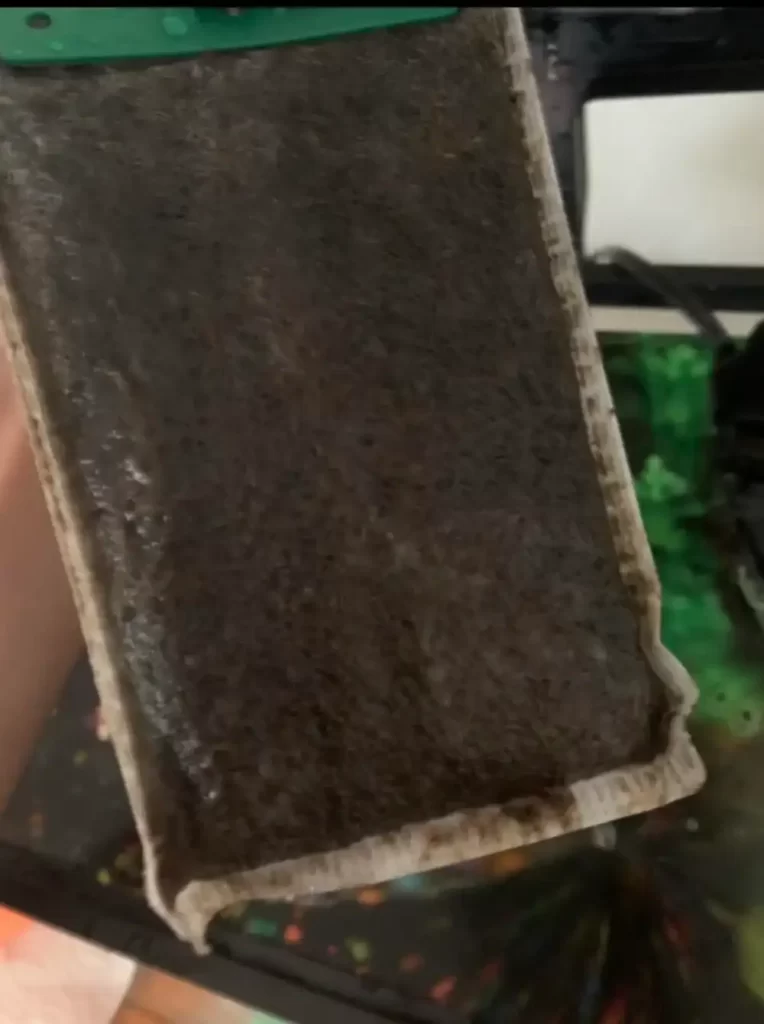
Incorrect Filter Size
Another common cause of fish tank filter overflow is using the wrong-sized filter. If your filter is too small for your tank, it will not be able to handle the volume of water and will overflow. On the other hand, if your filter is too large, it can create a strong current that can also cause overflow.
To prevent, this from happening, make sure you choose the right-sized filter for your tank. The general rule of thumb is to choose a filter that can handle at least twice the volume of your tank.
Overfeeding Fish
Overfeeding your fish can also lead to filter overflow. When you feed your fish too much, it can create excess waste and debris in the water, which can clog your filter and cause it to overflow.
To prevent, this from happening, make sure you are feeding your fish the right amount of food. A good rule of thumb is to only feed them what they can eat in two minutes, twice a day.
Excessive Algae Growth
Finally, excessive algae growth can also cause fish tank filter overflow. Algae can quickly grow and clog your filter media, preventing water from flowing through it and causing it to overflow.
To prevent, this from happening, make sure you are controlling the amount of light your tank receives. Algae thrives in light, so reducing the amount of light can help prevent excessive algae growth. You can also add algae-eating fish or snails to your tank to help keep algae under control.
By addressing these common causes of fish tank filter overflow, you can prevent this frustrating issue from happening in the future.
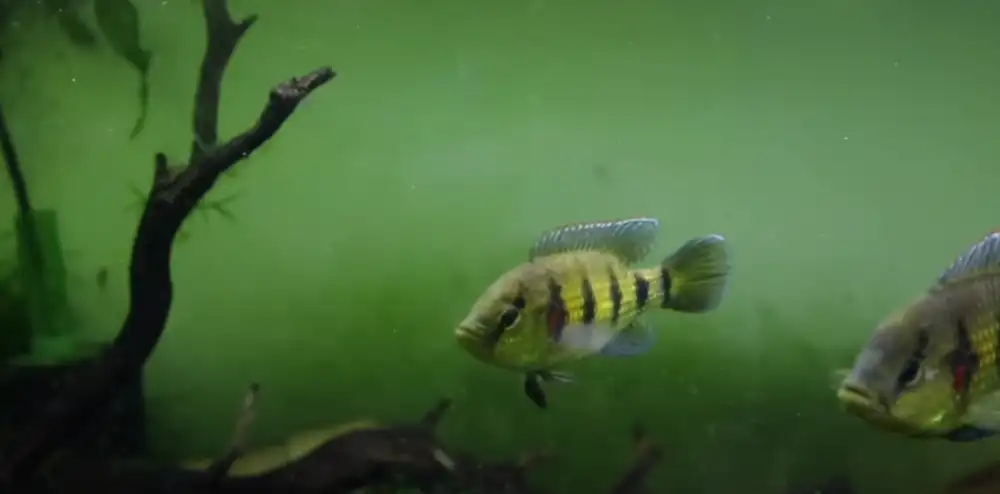
Read More: How to Clean a Tetra Whisper Filter?
How to Fix an Overflowing Filter
If you’re experiencing an overflowing fish tank filter, don’t panic! There are several solutions you can try to fix the problem. Here are some tips to help you get your filter back to working properly.
Cleaning the Filter
One of the most common reasons for an overflowing filter is a clogged filter media. Dirt, debris, and other particles can get trapped in the filter, causing it to overflow. To fix this issue, clean your filter media regularly. Take out the filter media and rinse it with water to remove any debris. If your filter media is too old or damaged, replace it with a new one.
Adjusting Filter Size
Another reason for an overflowing filter is using the wrong-sized filter for your aquarium. If your filter is too small for your aquarium, it will not be able to handle the amount of waste produced by your fish. On the other hand, if your filter is too large, it will create too much water flow, causing the filter to overflow. Make sure to choose the right-sized filter for your aquarium.
Regulating Fish Feeding
Overfeeding your fish can also lead to an overflowing filter. When fish are overfed, they produce more waste, which can clog your filter. To avoid this, regulate your fish feeding. Feed your fish only the amount they can consume in a few minutes and avoid overfeeding them.
Controlling Algae Growth
Algae can also contribute to an overflowing filter. When algae grow in your aquarium, they can clog your filter media, causing it to overflow. To prevent this, control algae growth in your aquarium. Keep your aquarium away from direct sunlight, reduce the amount of food you give your fish, and perform regular water changes to remove excess nutrients that promote algae growth.
By following these tips, you can fix an overflowing fish tank filter and keep your aquarium clean and healthy for your fish.
Related Post: Sponge Filter Not Bubbling – Understanding the Issue
Preventing Future Filter Overflows
To prevent future filter overflows, there are several things that fish owners can do. These include regular filter maintenance, proper fish feeding habits, and algae control methods.
Regular Filter Maintenance
Regular maintenance of the fish tank filter is essential to prevent filter overflows. Fish owners should clean the filter media and replace it when necessary. They should also check the filter’s impeller and tubing for any blockages or damage. If there are any issues, they should be fixed immediately to prevent water from overflowing.
Proper Fish Feeding Habits
Overfeeding the fish can lead to excess waste in the tank, which can cause the filter to become overloaded and overflow. Fish owners should only feed their fish the recommended amount of food. They should also avoid feeding their fish food that can easily dissolve and cloud the water.
Algae Control Methods
Algae growth can cause the filter to become clogged, leading to overflows. Fish owners should use algae control methods such as reducing the amount of light the tank receives, regularly cleaning the tank, and adding algae-eating fish or snails to the tank.
By following these preventative measures, fish owners can avoid future filter overflows and maintain a healthy and clean environment for their fish.
Frequently Asked Questions [FAQs]
How Often Should I Clean My Filter?
Cleaning your filter is an essential part of keeping your fish tank healthy and functioning properly. It is recommended that you clean your filter at least once a month. However, the frequency of cleaning can vary depending on the size of your tank, the type of fish you have, and the type of filter you are using.
If you have a larger tank or more fish, you may need to clean your filter more frequently. Additionally, if you have a filter that uses mechanical filtration, you may need to clean it more often than a filter that uses biological filtration.
To determine the best cleaning schedule for your filter, it is important to monitor the water quality in your tank regularly. If you notice a decrease in water quality or your filter is not functioning properly, it may be time to clean your filter.
What Is the Correct Filter Size for My Tank?
Choosing the right filter size for your tank is crucial to maintaining a healthy environment for your fish. The general rule of thumb is to choose a filter that can handle at least 2-3 times the volume of your tank.
For example, if you have a 20-gallon tank, you should choose a filter that can handle at least 40-60 gallons of water per hour. This will ensure that the water in your tank is properly filtered and oxygenated, which is essential for the health of your fish.
When choosing a filter, it is also important to consider the type of fish you have and their specific needs. Some fish require a higher flow rate or more oxygenation than others, so it is important to choose a filter that can meet these needs.
Read More: Why Is My Fish Tank Filter Leaking?
Source: https://www.reddit.com/r/Aquariums/comments/qewbka/filter_overflowing/?rdt=50959

